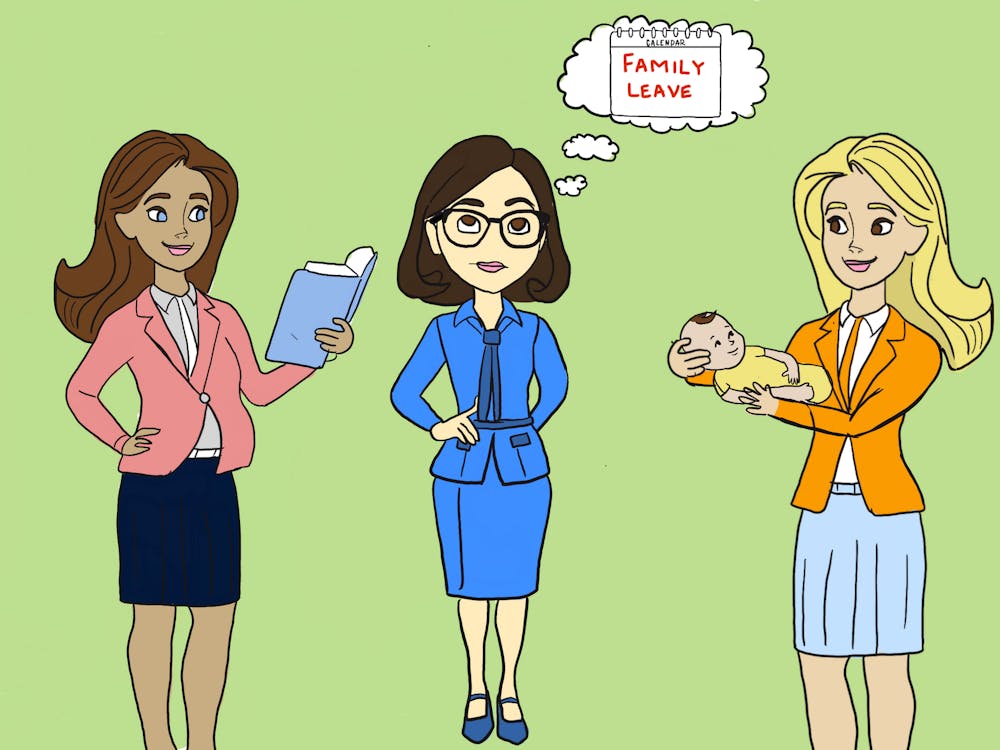Twins have been the subject of study for years as scientists search for the answer to the never-ending debate of "nature versus nurture." Psychology Profs. Eric Turkheimer and Robert Emery are taking their twin study in a slightly different direction, however.
According to both Turkheimer and Emery, twin studies in the past have mostly looked at how genes contribute to behavior, particularly in the differences in genetic makeup of fraternal versus identical twins.
In contrast to this focus, Turkheimer said his collaboration with Emery takes a unique approach to twin data. "We are using twins in a new way," he said. "For a long time, twins used computational evidence for similar genes and similar characteristics. Identical twins are more similar because of genes." Turkheimer added that this study takes a "slightly different direction to study normal developmental processes within families," including the effects of divorce on children and the differences between children raised in broken and non-broken homes.
The focus of their project is to study the normal developmental process within families, particularly looking at how environmental factors affect behavior.
With this focus, the two professors are looking at the effects of non-shared experiences in twins, for example, if one twin faces a traumatic event and the other does not.
Turkheimer explained that individual interest and difference in data collection is the basis for his long-time collaboration with Emery. Turkheimer is more the statistician of the pair - with a team of graduate students, he has been collecting and examining quantitative data from hundreds of individuals already. In fact, in 2009 he was awarded the James Shields Award for excellence in twin research by the Behavior Genetics Association and the International Society for Twin Research.
The other half of the pair, Emery, is a family researcher who has recently begun gathering qualitative data from a "handful" of individuals through interviews. He also serves as the director of the Center for Children, Families, and the Law at the University.
Emery said he is looking for more identical and fraternal twins in the University community, adding that the comparison between the two types of twins makes for an interesting study of genetics and environmental factors. He said since identical twins have the same genetic makeup, they are "much more" similar in personality and have more shared experiences, while fraternal twins are more like regular siblings.
Third-year College student Catherine Boniface has an identical twin named Emily - also a University student. Although Boniface has never done a twin study, she said she is interested in the latest research.
"Despite the fact that I'm the subject, I'm very interested in the relationships of twins," Catherine Boniface said, adding that her genetics professor has sent her articles about the genes in identical twins.
In studying identical twins, Emery said he also likes to focus on the impact of differences in lives as results of big life decisions, such as college or career choices, romantic relationships and certain circumstances which only one twin has experienced.
Catherine Boniface explained that she and her twin have shared all the same life experiences, so in that way they are similar. Catherine Boniface said she and her twin are best friends who are also independent - the pair has never lived together at college, and they have different majors and different sets of friends.
Emily Boniface laughed about a situation at the gym when a guy she didn't know came up and gave her a hug, because he thought she was Catherine. "He was embarrassed about it, but it happens on a daily basis - so much that it doesn't even affect us anymore," she said, adding that the cases of twin confusion have greatly increased since high school because the University community is a much larger environment.
Although third-year College students and identical twins Gray and Taylor Bryant attended different boarding schools, they both chose to attend the University. Gray Bryant said he and his twin brother are "very similar" in terms of interests and personality. He added that their good friends can tell them apart but people do often get the two confused with each other, and sometimes people do not realize he has an identical twin even after knowing him awhile.
Emily also said people often don't know and are surprised when they find out that she has a twin. "Internally, I don't feel like a twin since we're so independent," she added.
Fourth-year College studnets Carter and Lane Ware are another set of identical twins on Grounds who are just as much friends as they are twins. "I've really enjoyed my experience at U.Va," Carter Ware said. "At first, it was nice having someone you knew really well when coming from out of state. Now I don't really see it as having a twin attend the same college but rather just a good friend."\nWhen asked about the conclusion of the study, Emery said that would like to publish a book in addition to scientific articles. The idea "is still up in the air" but if he does decide to publish a book, he is considering the title "Twin Lives"






